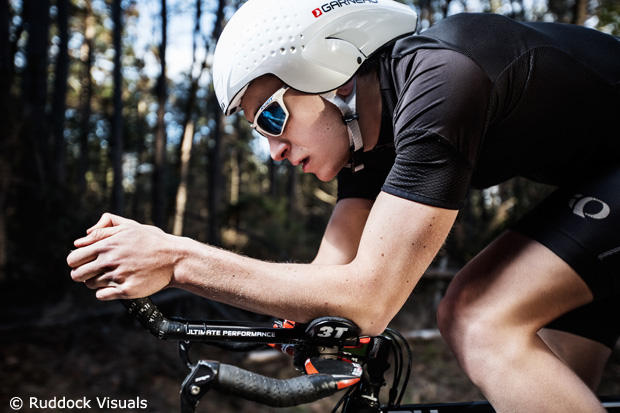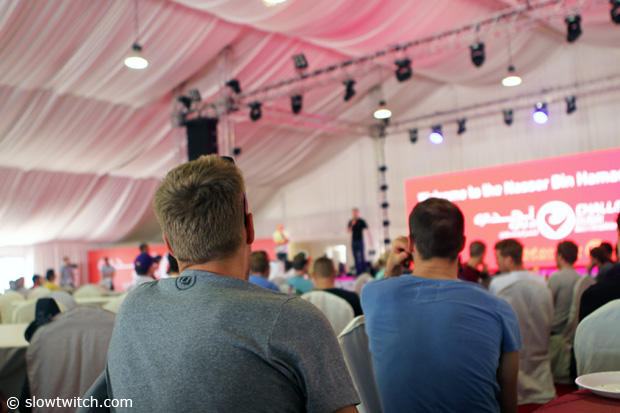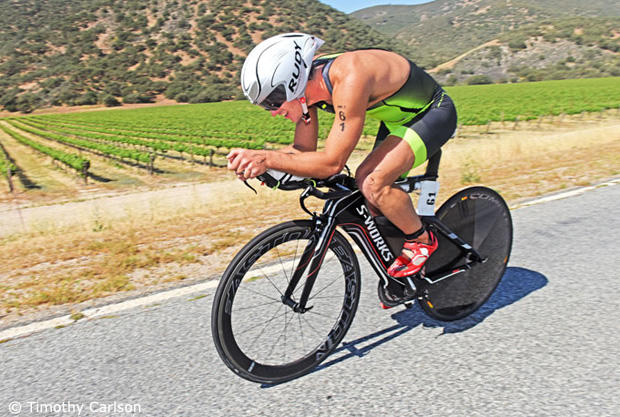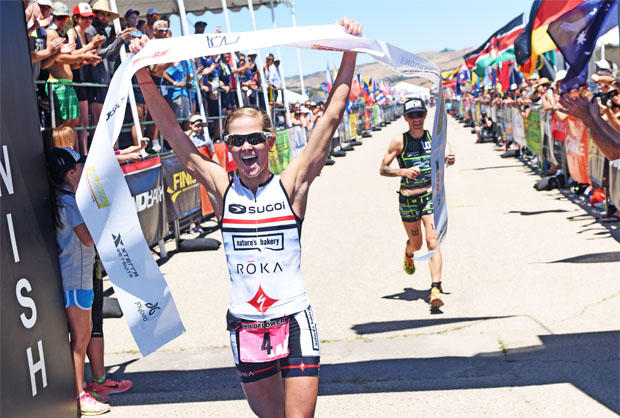Derek Garcia 3 years after cancer
Derek Garcia got a pro triathlon card in 2012 and learned that summer that he had testicular cancer. All signs point in the right direction now and he is racing strong now. Raised in Coeur d’Alene, Idaho, Garcia and his young family took up residence in San Diego, California.
Slowtwitch: How are you Derek?
Derek Garcia: I am doing well Herbert, I am honored to be interviewed.
ST: You very much deserve an interview and it is as simple as that. Along those lines, it has been a couple weeks since Wildflower. What have you been up to since the race?
Derek: I drove back to San Diego the next day and as per normal, I took a pretty easy 2 days post race. I made it a priority to spend some time with my kiddos. My oldest son is right in the middle of his little league baseball season, so we spent some time working on baseball skills. Other than that, I have been balancing getting ready for Challenge Knoxville while keeping Ironman Coeur d’Alene in mind, as that is my big race of the season.
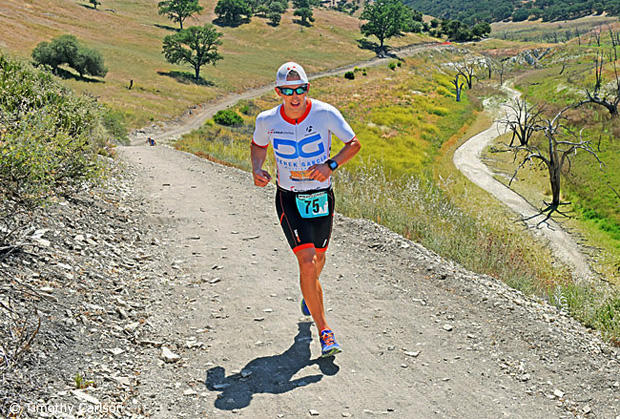
ST: Are you a decent baseball player yourself?
Derek: Not anymore! I used to be. I was always a student of the game. Now it is a lot of fun to share what I learned with my sons. Baseball success is highly dependant on proper mechanics, a lot like swimming, and I believe I have a very good grasp on those. It is in my nature to teach and so it is an enjoyable process seeing them learn.
ST: What sports did you play growing up?
Derek: I played the American big 3 of baseball, basketball, and football. Mostly I stuck with baseball, since I realized early I was too small to play the other sports.
ST: But no running, swimming or cycling really?
Derek: None at all. I had never run more than 3 miles when I started training for my first triathlon. The extent of my swimming was playing in the lake as a kid, and cycling was riding my bike to school.
ST: In 2012 you dealt with testicular cancer, and that was a scary episode for you and your wife. Does that now seem far away or is that still heavy on your mind?
Derek: For the most part it seems far away. My ongoing surveillance plan includes blood work and scans at regular intervals throughout the year, and I usually get a lump in my throat on the drive to the doctor each time. However, my youngest son Daniel came post cancer, and he is my daily reminder of how fortunate I really was and still am. I can’t help but be reminded of that year, when I hear about other family members and friends who are diagnosed or are struggling with own their battles.
ST: I believe that you were in denial for quite a while before you decided to have it checked out.
Derek: It was my first year as a professional and my volume on the bike had increased quite a bit. I was in the best shape of my life up until that point. When I started to notice swelling, I thought that it was 100% related to my increase in training. It took me 12 weeks to finally go to the doctor.
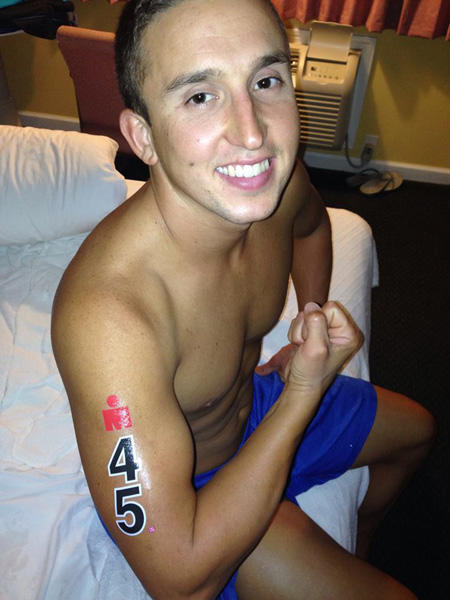
ST: For a young and very fit athlete, is there also possibly a feeling of invincibility?
Derek: I guess there was somewhat of that. Cancer was definitely not on my radar. As a male, I thought that cancer concerns only came up once you hit the magical age of 50. Then come to find out I was right in the middle of the testicular cancer demographic. It is most commonly diagnosed in males between the ages of 15-35.
ST: What advice do you give people now about seeing a doctor when something seems odd?
Derek: There is no shame in going to the doctor only to find out nothing is wrong. I waited because I didn’t want to create any unwarranted stress by going to the doctor for what I assumed was a minor issue. So in short, just go. If anything is off, just go get checked out.
ST: Back to Wildflower. I assume you were reasonably pleased with your finish there.
Derek: I was. I knew my fitness was at a place that I could contend for a podium there, and I was close to meeting my goal.
ST: Could you hear Matty Reed’s footsteps behind you?
Derek: To be honest, I have not finished a race in that way before. I was seeing stars with about 2 miles to go on the run. I am very lucky that I held off Matty Reed and Mark Bowstead, but I really did not have much of an idea of what was going on around me.
ST: I think the trouble for you started with dropped nutrition.
Derek: I lost 400 calories before the start of the run. That absolutely played a part in it. To be honest though, I can’t blame it on that. Calorie intake is ultimately in my control, and I could have stopped and walked an aid station or two. But I didn’t want to stop since I felt great early and I was gaining momentum as I moved up in the run, and ended up paying for it a bit in the end.
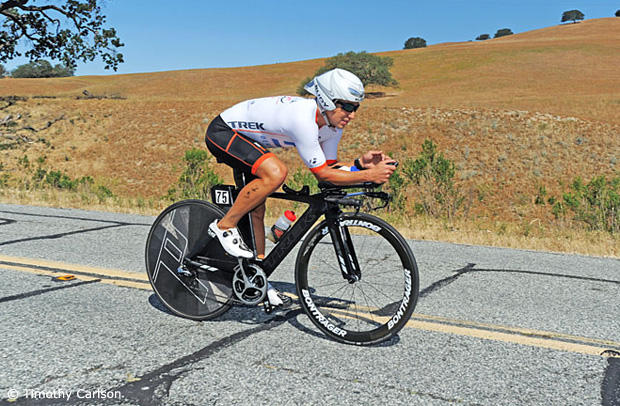
ST: Where did Leiferman and Gerlach catch you?
Derek: Leiferman caught me with around 1.5 miles to go and Gerlach passed me going down lynch hill. Don’t hold me to the exact specifics though. I was rolling along the course in 2nd at the halfway point of the run and was convinced that I was going to catch up to Jesse. Out of transition I was 3:00 down and I made decent progress as a few spectators were leapfrogging the course and giving splits. The last coherent thought I had was when someone told me I was 1:15 down a bit before mile 8. Shortly after that, I completely popped. I really was not sure if I would finish. Matt Lieto caught and passed me, then Leiferman, then Gerlach, and coming down lynch all I could think was that for the first time in my life I wished I had Rollerblades on!
ST: With not much of an idea of what was going on, did you see or recognize your family as you came to the finish?
Derek: Everything at the finish was a blur. My wife, Shannon, was right there when I crossed, but the first time I remember seeing her is in the medical tent sitting next to me while they started an IV. Then on a post race video I saw a different perspective of the finish line and it triggered the memory of Matt Lieto right at the finish congratulating me as I came across. Although I got 5th, Matt later gave me the Rocky Balboa award of the weekend.
ST: Is that an actual award, maybe like a nasty old boxing glove, or just one of words?
Derek: It was just one of words, I am still waiting to receive the official trophy.
ST: How had you decided to compete there in the first place?
Derek: Wildflower has been on my radar since I did my first triathlon in 2006, and a local group of athletes were traveling down to compete. Later, one of the first triathlon magazines I ever read recounted Macca’s win over Eneko Llanos. The thought of running down a mile hill to the finish and the grass roots nature of the event really appealed to me. My first half iron race was is in 2007. The race was a non-branded, insanely difficult course in Washington called the Grand Columbian Triathlon. I was incredibly undertrained, but I loved every minute. I finished the race in a blazing 5:41 with a 2:11 run split!
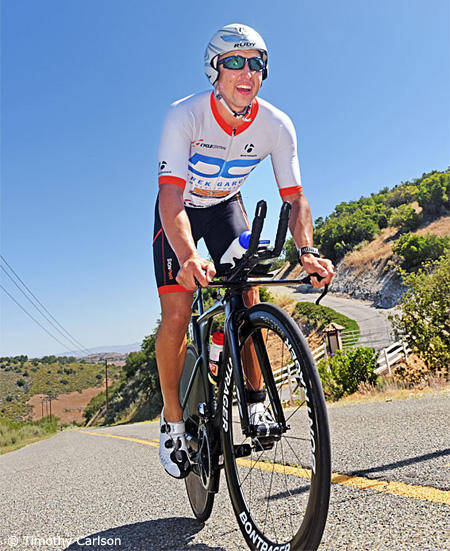
ST: At the end of March you did Oceanside 70.3 and I think your 4:03:51 meant 14th place. Talk about the event.
Derek: I went into the event with the goal of having a consistent race from start to finish. My first big training block of the year was coming to an end before this race and I knew that I would not be incredibly sharp. It made sense, since I live so close and I feel like the fitness gained from a half iron effort really can’t be replicated in training. Going into the race, I told my wife that top 15 was likely where I would finish, and ultimately I had an accurate idea on what would unfold. I thought with a very good run I could finish in the top 10, but I swam too slowly to even be in the race. I was pleased with my bike [2:15] and run [1:18], but obviously this was well off what was needed to be with the superstars up front. That being said, I came away with the confidence that I was moving in the right direction.
ST: How far from the race site do you live?
Derek: I live 30 miles south of Oceanside now.
ST: Is Oceanside almost a must do event for you now?
Derek: I think it will be a staple in the schedule. It is always a true measure of early season fitness. I hope to be more competitive in the future.
ST: Are you still living part of the year in Coeur d’Alene?
Derek: I will spend 3 weeks there in the summer. Last summer I spent 10 weeks there, but we have a better long term living situation in San Diego now, so I wont hang around too long after Ironman.
ST: Just for the race?
Derek: I will get there 10 days prior to ride the course and get setup. Afterwards, the 3rd annual Garcia boys 4th of July camping trip will commence. This is likely my favorite week of the year. We will have time to see all of our friends and family that we miss throughout the year, then we will head back to SD.
ST: You are signed up for Challenge Knoxville, and I believe that is your first Challenge event.
Derek: Yes it is. I was quite excited for the variety of races in my schedule this year. TriCal, Challenge, and Ironman were all mixed in. Now though, it looks like Challenge may be a one and done until I venture to Europe or the Middle East.
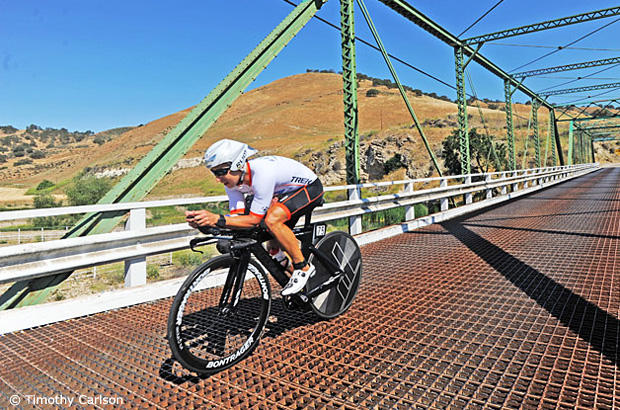
ST: What is the goal for Knoxville?
Derek: I want to improve upon my Wildflower performance. Obviously I cannot control how others race, but I am confident I can go a few notches up the result sheet this go around.
ST: What other races are on your calendar?
Derek: It is a work in progress now. I will be doing Ironman Coeur d’Alene as I said before, then it is fuzzy. I was planning on Challenge Poconos Mountains, Penticton, and Rancho Cordova, plus an Ironman 70.3 or two mixed in. It will be something that I have to solidify in the next few weeks. It is probably a good taper activity before CDA.
ST: Had you actually already registered for Challenge Poconos. Penticton and Rancho Cordova?
Derek: I was signed up for Poconos, and Penticton. I had not heard anything back about Rancho Cordova however.
ST: Anything else we should know?
Derek: Most of all I want to say thank you. Not only to Slowtwitch for the interview, but to the endurance community. The support following my cancer diagnosis, lifelong friendships, and an overall better health have come directly from the relationships that I have built through multisport. My life has been turned upside down by the endurance world over the last 10 years, and now I can’t imagine my life without it. My passion to reach my limits as an athlete has allowed me to actively teach my 3 boys what it means to truly commit to something. It has been a struggle at times. They have seen my wife and me work together on how to achieve the lofty goals we have set in place. I believe I can reach them, but even if I don’t, I know that my boys are learning that dreams deserve a relentless effort. Thanks!
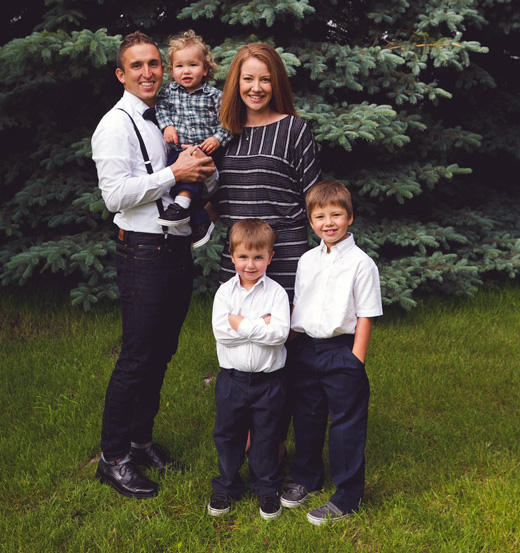
The website for Derek Garcia is simply derekgarcia.com and his Twitter handle is @dgar5


